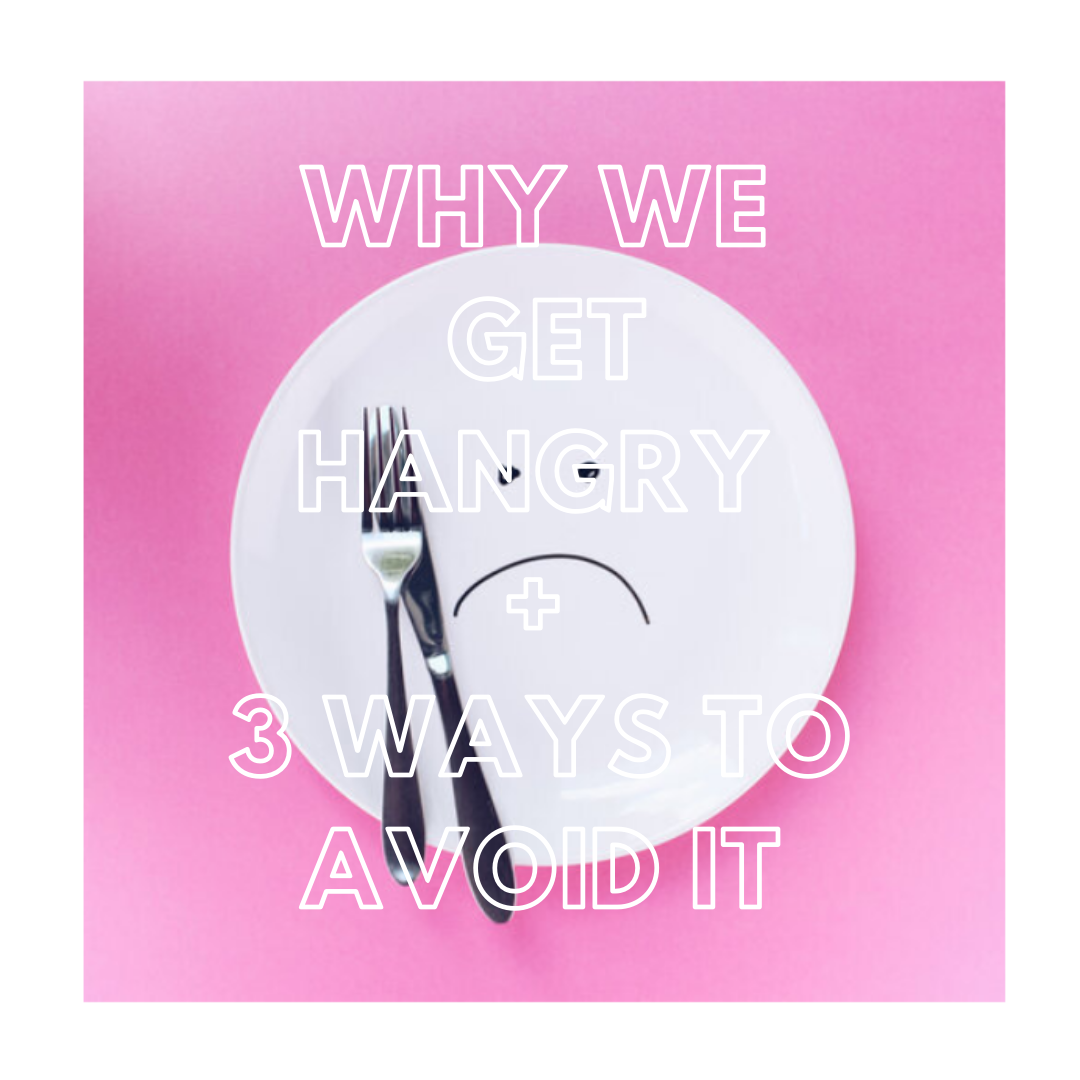3 Tips to Avoid Feeling Hangry
Not sure about you but I need to eat pretty regularly in order to stay nice. If you’re in my camp, this blog post is for you. Below, I’m rounding up my top three tips to help you avoid feeling hangry.
Why do we get hangry?
Hanger (that is, anger due to hunger) is essentially a product of low blood sugar levels. That is, when we don’t eat anything for a number of hours, our blood sugar levels start to dip and we may feel a variety of not-so-nice symptoms as a result.
Common signs and symptoms of low blood sugar, AKA hypoglycemia, include weakness, fatigue, dizziness, and difficulty concentrating. Feeling hangry due to low blood sugar only makes sense, then. After all, who feels their best when they’re tired, brain foggy, and unfocused? Not me.
What’s more, low blood sugar can also trigger hormonal responses in the body that can exacerbate irritability. For example: the body may release more of the stress hormone cortisol and/or the fight or flight hormone adrenaline when we’re in a hypoglycemic state. A spike in cortisol can contribute to increased aggression, while more adrenaline may lead to a lack of impulse control, per The Cleveland Clinic.
The good news? There are simple choices we can make to avoid becoming overly hungry to the point of being, well, pissed. Below, I share my three top tips to avoid feeling hangry.
01: Eat Often
Have you ever skipped lunch and then totally over-stuffed yourself at dinner? That’s a completely normal physiologic response. When we haven’t eaten for hours, our bodies send signals to the brain to refuel itself — fast. While it may feel like a loss of “self control,” it’s really just your body’s innate reaction to the threat of starvation. The problem? You may feel hangry before a meal, then continue to be irritable because you’ve now eaten to the point of uncomfortable fullness.
To avoid this vicious cycle, aim to eat every three to four hours throughout the day. Eating regularly helps ensure that our blood sugar remains stable instead of dipping and spiking when we accidentally fast and then feast.
One thing to note: grazing all day long isn’t good for blood sugar stability, either. Overeating can send our blood sugar levels in the opposite direction, potentially leading to insulin resistance and a heightened risk of type 2 diabetes if levels remain high chronically. Plus, our digestive systems actually benefit from periods of rest so they can go to work digesting and absorbing the food we’ve just consumed.
02: Break up With the Clock
Consider this permission to deviate from social norms when it comes to mealtimes. In other words, if it’s 11:15 a.m. and you’re ready for lunch, go ahead and eat lunch. Don’t delay eating just because your coworkers typically break for food at 1:30 pm. Ignoring natural hunger cues is a sure way to induce hanger.
If you’re starving at 5 p.m. and have dinner plans at 7:30 p.m., opt for a smart snack that won’t wreck your appetite but will tide you over until you’re ready for the full meal. Speaking of snacks…
03: Build Better Snacks
Smart snacks that contain protein and/or fat along with high-quality carbohydrates can prevent you from feeling hangry.
Why? Fat contains more calories by weight (9 kcal/gram) compared to protein and carbs (4 kcal/gram), so it’s bound to keep you full for longer.
High quality carbs are key because they provide glucose — the body’s preferred source of energy — as well as fiber. Soluble fiber expands in the GI tract and slows gastric (stomach) emptying, helping you stay full for longer. Fiber also helps keep those all-important blood sugar levels in check by slowing down the body’s absorption of sugar from foods and drinks.
Here are some basic smart snack examples:
Olives (fat) + cheddar cheese (fat, protein) + 1 serving whole wheat crackers (carbs)
Plain Greek yogurt (fat, protein) + fresh fruit (fiber, carbs) + nut butter (fat, protein)
Guacamole (fat) + carrot, cucumber, and bell pepper sticks (carbs)
Peanut butter (fat, protein) + banana (carbs)
Hard-boiled eggs (fat, protein) + popcorn (fiber, carbs)
Want more healthy snack ideas? Here are my four favorite snacks for every palate!
The bottom line
To avoid feeling hangry, seek blood sugar stabilization. Don’t go hours without food. When we feel starved, we’re more likely to 1) be in a bad mood and 2) eat until we’re uncomfortably full (and then potentially stay in a bad mood as a result).
Outsmart hanger by honoring your hunger cues, eating every three to four hours, and leaning on smart snacks.



